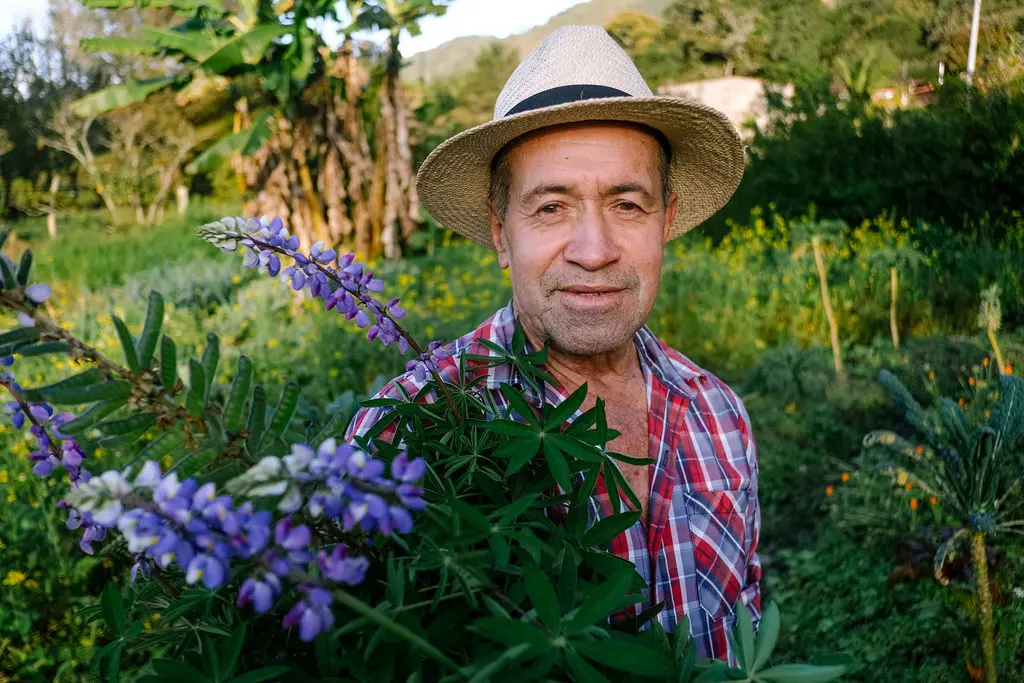Travel insights from Latin America
Author Bernadette Coote | Published on June 23, 2023
Head into the rolling olive-green Andean hills in Antioquia to discover the story of how a Colombian farmer transformed his cultivation methods to blaze a trail in sustainable production.
Don Carlos turned away from pesticides and chemicals usage on his farm after a severe health scare. Today, he uses 100% organic methods and partners with Kagumu in educating the next generation about the importance of responsible consumption and production.
Whether on a one-day experience or part of a multi-day tour, visitors will get their hands dirty working on the farm, discover the effectiveness of the circular economy, and even cook their own meal!
Where is the farm: El Carmen de Viboral
Carmen de Viboral is a traditional, understated town of around 49,600 people, located in the mountains to the east of Antioquia, about 54 km outside of Medellin. Surrounded by rolling farmland, it is not surprising that, aside from a booming ceramics industry, the main source of income is agriculture.
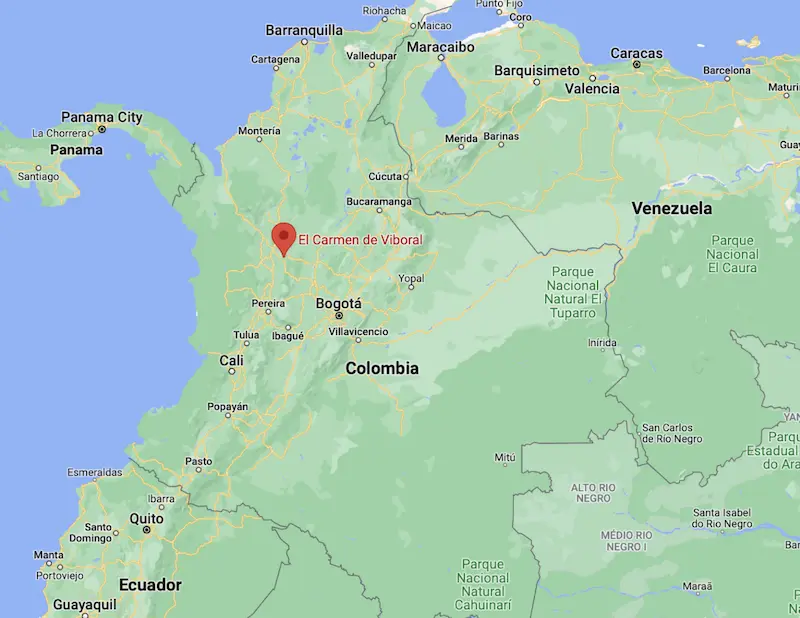
Products such as potatoes, corn, beans, blackberries, cape gooseberries and other fruits typical of the climate (cool and often slightly overcast), are grown and sold across the region.
Whilst the area – in fact the whole department of Antioquia – looks lush and green, some of Colombia’s main environmental concerns are soil health and deforestation.
Over-farming, mono-cropping and the heavy use of pesticides and fertilizers has taken a great toll on the environment and land use accounts for the largest source of Greenhouse Gas Emissions in the country.
However, Don Carlos and the La Rena Ser farming project are doing things very differently!
Click here to see Kagumu’s culturally-immersive trips around Latin American countries
From severe illness to a sustainable lifestyle
At La Rena Ser education is key.
Don Carlos has cultivated a strong belief that everyone from indigenous communities and farmers, to academics and researchers, has something to contribute to our understanding of how we can feed ourselves in a responsible and self-sustaining way.
For over 20 years Don Carlos has been a continuous champion of agroecological farming processes.
However, it has not always been like this.
“I’ve been working on the farm since I was 12,” Don Carlos recalls. “And for most of my adult life, the Colombian government has been promoting the use of these chemicals.”
“I had blurry vision; I had headaches all the time,” he said. “The more I used pesticides the worse it got.”
Don Carlos decided he needed to change and after hearing about new organic methods he ditched the fertilizer and began experimenting with different field shapes, co planting methods, and other techniques to help crop growth.
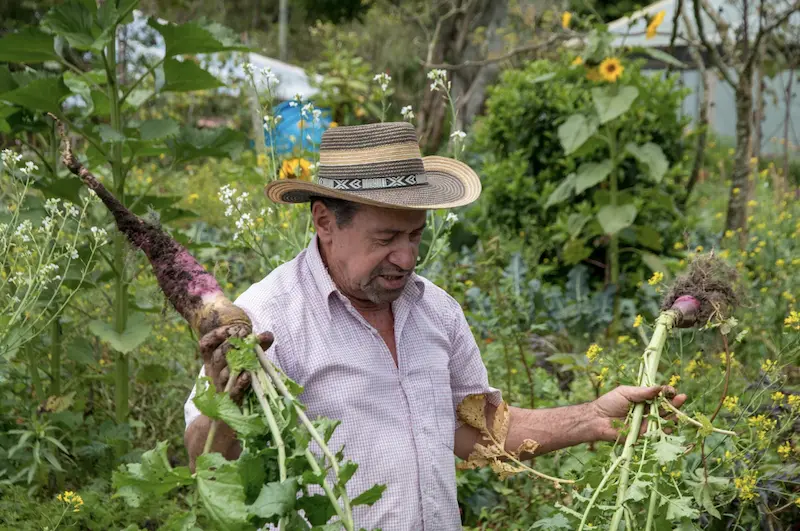
His team now uses traditional knowledge, preservation of native seeds, and environmental conservation to build a flourishing farm that works in harmony with nature, supports biodiversity and soil health and promotes alternative ways of producing food.
In just over one hectare of land the farm produces a wide range of crops including beans, tomatoes, aromatics and medicinal plants, all of which are sold in the farm shop and restaurant.
Okay now for something for students to think about…
Put down that apple! Hungry and looking for a healthy snack? Before you grab an apple from the tienda – wait!
Did you know that the majority of apples in Colombia are imported which not only means you aren’t having an authentic Colombian snack but your snack has racked up loads of miles in travel and increased your carbon footprint.
Instead, why not try one of the many exotic fruits that Colombia has to offer and that you most likely will never have seen before – grenadilla, pitaya, mangostino, zapote… the list is endless and they are all delicious!]
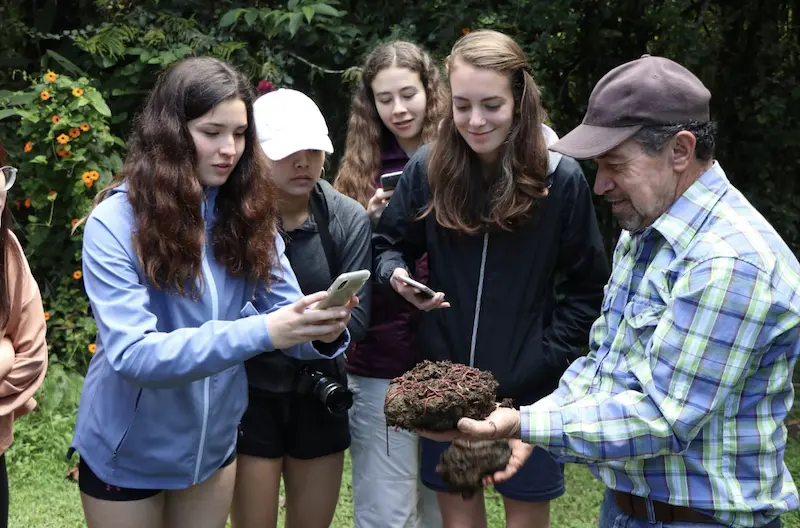
A real hands-on experience
Kagumu has been working with Don Carlos for years and our student visitors get the opportunity to visit the farm and work the land. Essentially, they will learn from Don Carlos and his teams’ vast experience of sustainable food systems.
Students will discover a wide range of fruit and vegetables, gain a greater understanding of how biodiversity remains the key behind cultivation and also make their own cream cheese!
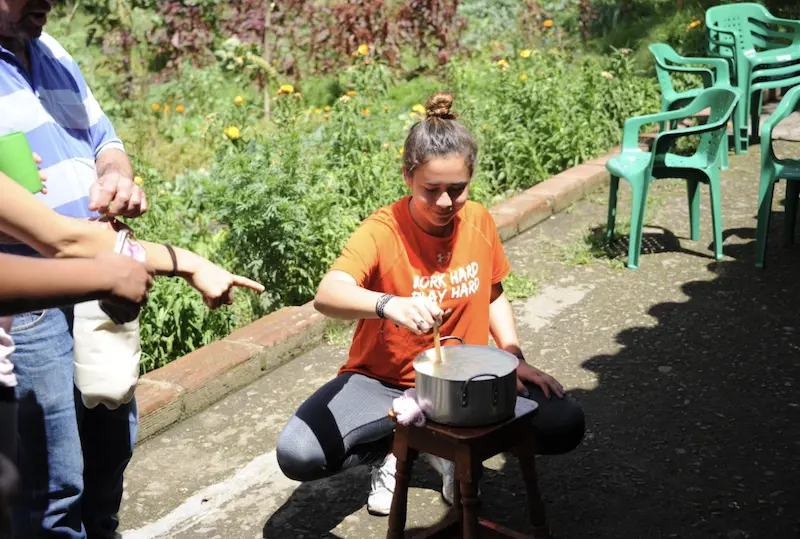
Don Carlos explains a little bit more:
“A group tour will normally include seeing the preparation for growing vegetables, making cream cheese, butter, cheese and yogurt, as well as how to prepare organic and liquid soaps.
“They will also see the grazing process for the cows, the circular vegetable gardens and all the benefits it has along with the properties of medicinal and aromatic plants. I work in botany and I like to study medicinal plants. These are just some of the many things that you can see on the farm.”
Students choose seasonal products from huge broccoli to weirdly-shaped carrots and from an array of herbs to kale or runner beans. They will then team up, create their own recipe, and under the guidance of a local chef, cook their own meal!
On every tour we also visit his daughter’s vegetarian restaurant in el Carmen de Viboral – la Horajarsca.
Connecting Don Carlos’s farm with the family restaurant is the perfect way to show how a circular economy works effectively and leaves no waste!
From the planting and production of organic crops through to the cooking and consumption of food – leaving nothing behind but healthy diets and healthy soils!
The circular economy is being applied in all walks of life, from upcycling clothes, to turning old bread into beer and many examples in between! But here we will look directly at the circular food cycle with Hojarasca and the Urban Garden.
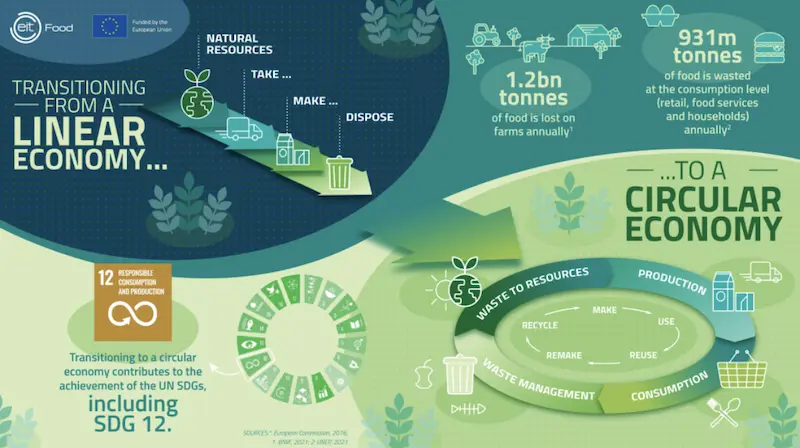
“In a circular food economy, activities at all levels of the food value chain rebuild overall system health by designing out the concept of waste. Providing environmental and economic benefits, circular economies maintain raw material sources and reduce the environmental impacts of production and consumption.”
– EIT Food
Over the years we have seen a remarkable transformation within visiting students.
The chance to meet and learn from Don Carlos is an excellent catalyst to make young people think more deeply about their own actions.
Jake, a 17-year-old student from Pacific Ridge School, San Diego, said: “His initiative made me feel so inspired because he made me think about how my eating habits have an impact on the environment and the health of the farmer and of course my own health.”
This first-hand farming experience exemplifies an increasingly important approach to responsible production and consumption.
It encourages every young person to think more carefully next time they pick up a fork! And for that, we say, gracias, Don Carlos!
If you are inspired to learn more about Don Carlos and sustainable farm-to-fork experiences, contact Kagumu’s team today to start planning a trip.

